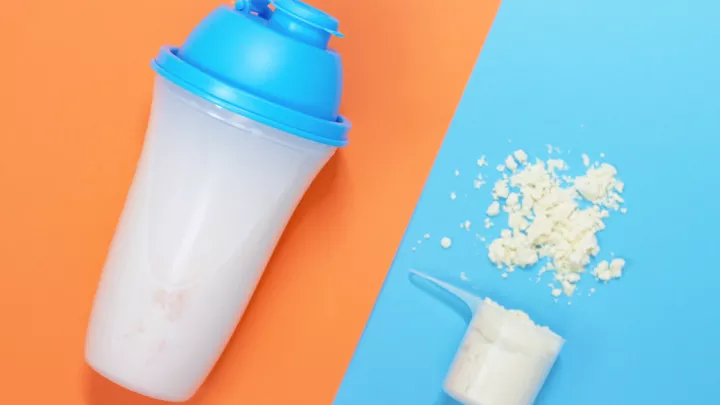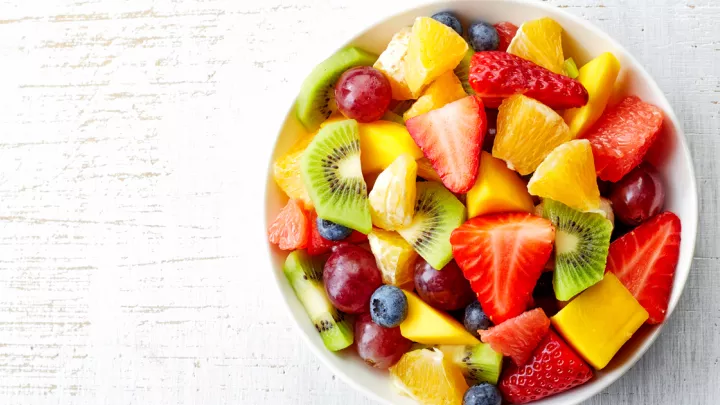Water 101: What it does for your body and 10 tips for staying hydrated

You may have heard that everyone should drink eight glasses of water per day. While that advice is reasonable, it may not be suitable for everyone in every situation. Your individual needs will depend on many factors, including your health, activity level, environment and more.
Up to 60% of our bodies are made of water. We lose it every minute of the day through our skin, urine, waste and sweat – even when we breathe. Water intake is essential for the life of every cell in our bodies. A few of the benefits include ensuring:
- Electrolytes are balanced
- Internal body temperature is regulated
- Carbohydrates and proteins are transported in the bloodstream
- Food is metabolized and hunger is regulated
- Kidneys, skin and vascular systems function well
- Joints are lubricated
- Body is flushed of waste
- Protection of sensitive tissues
- Brain and spinal cord are safe by acting as a shock absorber
- Saliva is adequately produced
- Pregnancies are healthy and milk supply is adequate for breastfeeding
Many things can go wrong quickly when a person doesn't drink enough water. "When a person is dehydrated, kidney function can be impaired, leading to acute kidney injury, kidney failure or even death," says Darby Luckey, DO, Nebraska Medicine family medicine physician. "Your electrolytes can become altered and your function at the cellular level is impaired."
Water also provides necessary hydration without adding additional calories. Unsweetened tea or coffee can be low in calories but have a diuretic effect that draws fluid out of the body.
How much water should a person drink in a day?
About 20% of our daily fluid intake comes from the food we eat and the rest from the liquids we drink. According to the U.S. National Academies of Science, Engineering and Medicine, men should drink 3.7 liters (about 125 ounces) and women 2.7 liters (about 91 ounces) of fluid per day. We also need to replenish water lost through factors like exercise, sweating, diarrhea, vomiting and fever for proper function.
Is there such a thing as drinking too much water?
"Yes, absolutely," says Dr. Luckey. "In fact, an excess of water can even become lethal. This is rare, but going outside of moderation can be harmful, especially to patients who have heart disease or electrolyte abnormality. The best bet is to clear with your physician what level of water intake is most appropriate for your body and your activity level."
Tips for staying hydrated
1. Drink a glass of water first thing in the morning.
"Starting first thing in the morning can help get your metabolism running and give you an energizing effect," says Dr. Luckey. "Certain people should exercise caution with fluid intake directly before bedtime. Those with enuresis, nocturnal urination or heartburn issues can be harmed by a big glass of water right before laying down."
2. Invest in fun or fancy water bottle.
A good water bottle can serve as a visual reminder to drink more water throughout the day. Certain bottles have marked measurements for tracking intake or have words of encouragement printed on the side as water levels go down.
3. Use alarms or notifications to your advantage.
Set alarms or notifications on your smart devices as reminders throughout the day. For a mental boost, set your Alexa or Google device to remind you along with verbal, positive encouragements.
4. Focus on your body's signals.
Be mindful of whether your body is thirsty or hungry. Sometimes we end up overeating because we mistake thirst for hunger.
5. Drink a glass of water before each meal.
It will help you stay hydrated, help your body digest food better and help you feel full faster.
6. Add calorie-free flavoring.
Try fruit or vegetable infusions in your water to make it more appealing. Prepare a jug in the refrigerator to infuse overnight to make filling your water bottle in the morning easier. Pick up a water bottle that has a built-in infusion basket for flavor on the go.
7. Check the color of your urine.
Some people check the color of their urine throughout the day to ensure it is clear or light-colored. Dark yellow urine may be a sign of dehydration for some.
8. Swap high sugar drinks for sparkling water or seltzer.
Not only will you cut back on unnecessary sugar, but you'll be adding to your water intake.
9. Set a daily goal.
A simple daily goal can help you stay motivated and work towards maintaining a healthy habit.
10. Make it a challenge.
Ask your friends to join you in a healthy competition to see who meets their daily goals regularly.







